Find a Document

Addressing Climate Change
Climate change presents a monumental challenge to the long-term reliability of Southern California's water supplies. Every watershed our region depends on is becoming more stressed and less dependable. Extreme weather conditions in recent years − abruptly swinging the state from periods of severe and extended drought to record-setting wet seasons, as well as wildfires, extreme heat and sea level rise − have presented Southern Californians with an unsettling preview of the challenges we face amid the cascading effects of a warming planet. There is no question that climate change is here and putting mounting pressure on the year-to-year management of our infrastructure and available water resources.
To manage the complexities and uncertainties of climate change, Metropolitan has developed a new Climate Adaptation Master Plan for Water. In addition, Metropolitan has committed as an organization to reducing our carbon footprint through our Climate Action Plan.
Metropolitan’s groundbreaking Climate Adaptation Master Plan for Water is a roadmap that will guide our future capital investments and business model as we confront our new climate reality in the years and decades ahead.
While Metropolitan has conducted long-range planning for its water resources portfolio since the mid-1990s with our Integrated Water Resources Plan, CAMP4W is an ongoing planning and decision-making tool that accounts for the complexities and uncertainties of climate change. Metropolitan's board approved the CAMP4W Implementation Strategy at its April 2025 meeting. Metropolitan is now evaluating proposed projects based on the criteria set in the Implementation Strategy, including reliability, affordability and environmental co-benefits. These assessments will help Metropolitan’s board decide which projects to support, at what scale, and when.
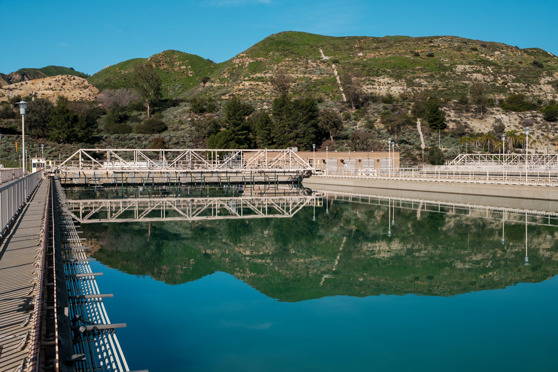
CAMP4W Objectives

Informed & Transparent Decision-making

Founded nearly a century ago to bring a new source of water for a growing Southern California, Metropolitan has long been a leader in developing innovative, collaborative long-term solutions that support our member agencies and the entire region. CAMP4W builds on that legacy. A Joint Task Force comprised of Metropolitan board directors, general managers from the district’s member agencies and Metropolitan staff guided plan development. The plan was also developed through extensive engagement with water leaders, business interests, environmental groups, community-based organizations and the public across the region, and engagement continues through implementation.
The board oversees implementation through the Subcommittee on CAMP4W. Meetings are open to the public and streamed live on our board calendar website.
CAMP4W creates a standardized methodology to evaluate climate-adaptation projects, allowing for a more informed and transparent decision-making process. Staff is preparing assessments for proposed projects, including Pure Water Southern California, Sites Reservoir, Delta Conveyance Project and increased investments in water conservation, which will be presented to Metropolitan’s board and the public starting in the Fall of 2025 and continuing into 2026.
These assessments will analyze how each project performs according to six criteria set in the Implementation Strategy:
“Whatever is done should be done for the benefit of the whole, and whatever is done for the benefit of the whole should be shared by the parts.”
— W.P. Whitsett, Metropolitan's first board chair, 1930
Improving System Resilience & Reliability
Through the CAMP4W process, Metropolitan is analyzing long-term improvements to create a climate-resilient network of facilities to ensure the reliability of our region's water supplies.
The record-low water deliveries we received from the State Water Project between 2020 and 2022 revealed a vulnerability in Metropolitan's regional water delivery system that impacted six of our 26 member agencies and nearly 7 million people. Due to constraints of the water delivery system, as well as limited access to other local supplies, these communities were forced to rely on extremely reduced water deliveries from the SWP. Metropolitan enacted emergency drought reductions to ensure these communities had enough water to get through the extreme drought.
Our board has since made a commitment to address these inequities and fast-tracked a number of construction projects, including the Sepulveda Feeder Pump Stations project, to improve water supply reliability for all member agencies. To date, we have secured $50 million from the state to help offset the cost of these projects.
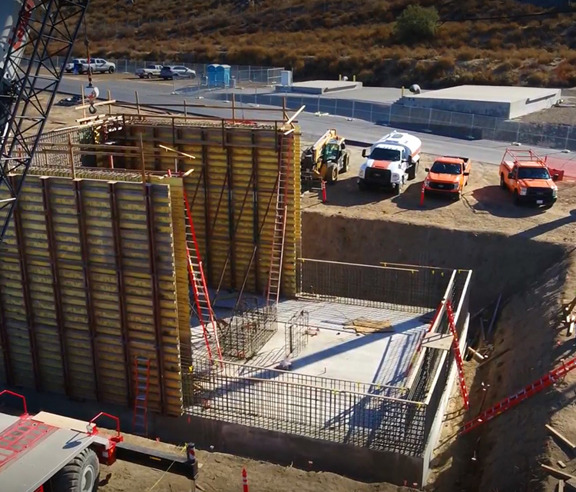
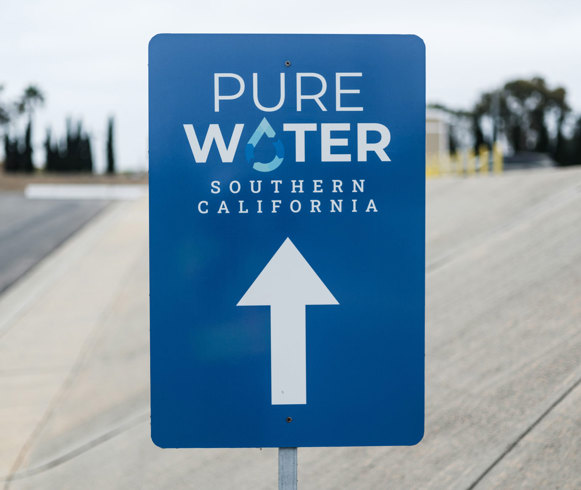
Expanding Our Water Resource Portfolio
CAMP4W incorporates real-world trends and is designed to help Metropolitan respond to the region’s evolving needs. The challenges of the future will likely require us to invest in more local supplies and conservation, while preserving and extending the use of our imported water supplies.
For decades, Metropolitan has incentivized local supply projects through the Local Resource Program, which offers financial incentives for member agencies to develop and expand the network of local resources across Southern California. This initiative has resulted in recycled water programs, groundwater storage initiatives and desalination projects.
Through the CAMP4W process, Metropolitan will assess the need and value of developing more local supplies, including its own collaborative partnerships. For example, our Pure Water Southern California regional recycling project, a joint venture with Los Angeles County Sanitation Districts, could become one of the world's largest water purification programs, producing up to 150 million gallons of new water supply daily. Another partnership with Antelope Valley-East Kern Water Agency to develop the High Desert Water Bank could provide Metropolitan more than 91 million gallons of additional storage, with nearly 23 million gallons of those reserves accessible on an annual basis.
Ensuring Equity, Affordability & Financial Sustainability
While many Californians understand the challenges facing water reliability, most also are concerned about the cost of water. CAMP4W emphasizes equity, affordability and financial sustainability. We're committed to offsetting the costs of our strategic climate adaptation investments through creative cost-sharing partnerships and the pursuit of additional state and federal funding. Since 2022, we've received more than $150 million in funding for projects that are giving us an early start on CAMP4W implementation.

L to R: Central Arizona Project Program Manager Vineetha Kartha, U.S. Bureau of Reclamation
Commissioner Camille Calimlim Touton, and Metropolitan General Manager Deven Upadhyay
Climate Adaptation in Action
Metropolitan is adapting to more extreme weather patterns and climate whiplash with smart planning, investments in diverse supplies and storage opportunities and critical partnerships across the regional, state and federal levels.
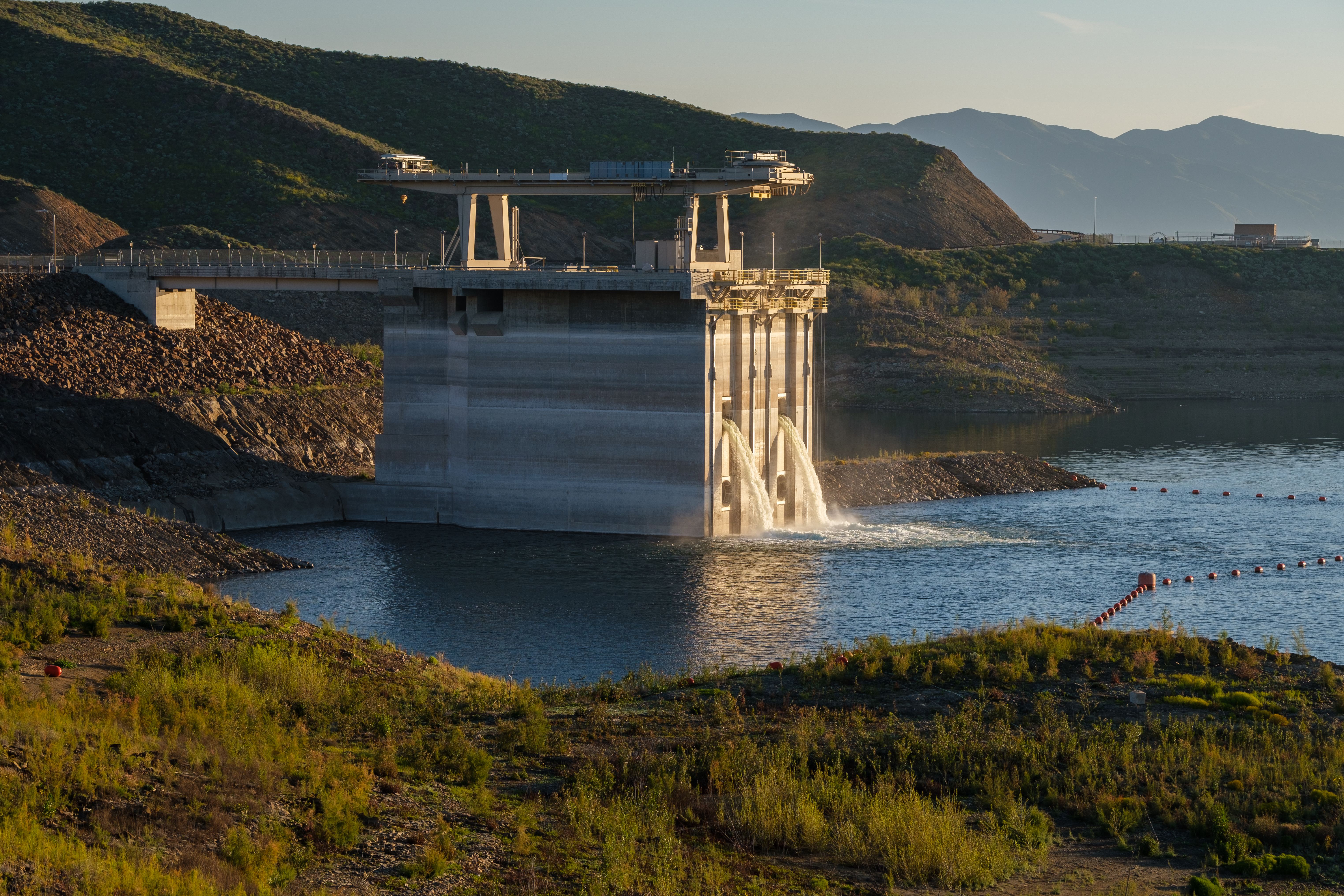
We’ve increased our storage by more than 13 times since 1990, and we’ve built a large conveyance pipeline that allows us to quickly move water into that storage. With annual snowpack projected to dwindle over the next century, these investments provide a valuable opportunity to capture water in wet years and save it for dry ones.
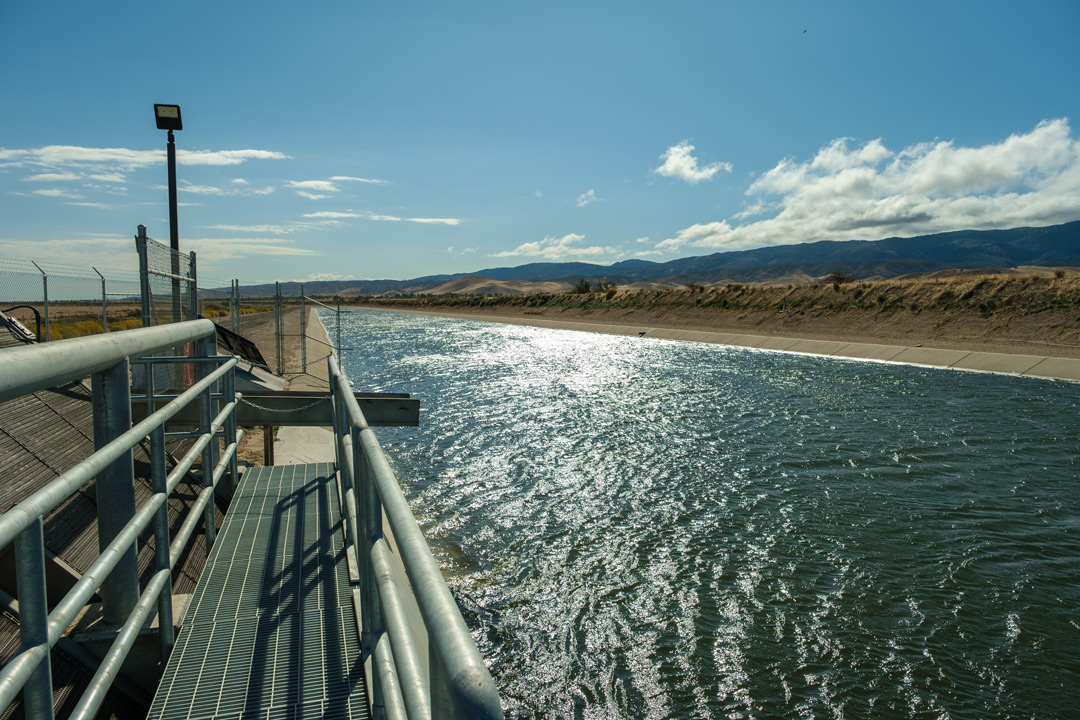
We’ve made our system more flexible. This allows us to push alternative water supplies further into our delivery network when our Colorado River or State Water Project supplies are reduced due to drought conditions.
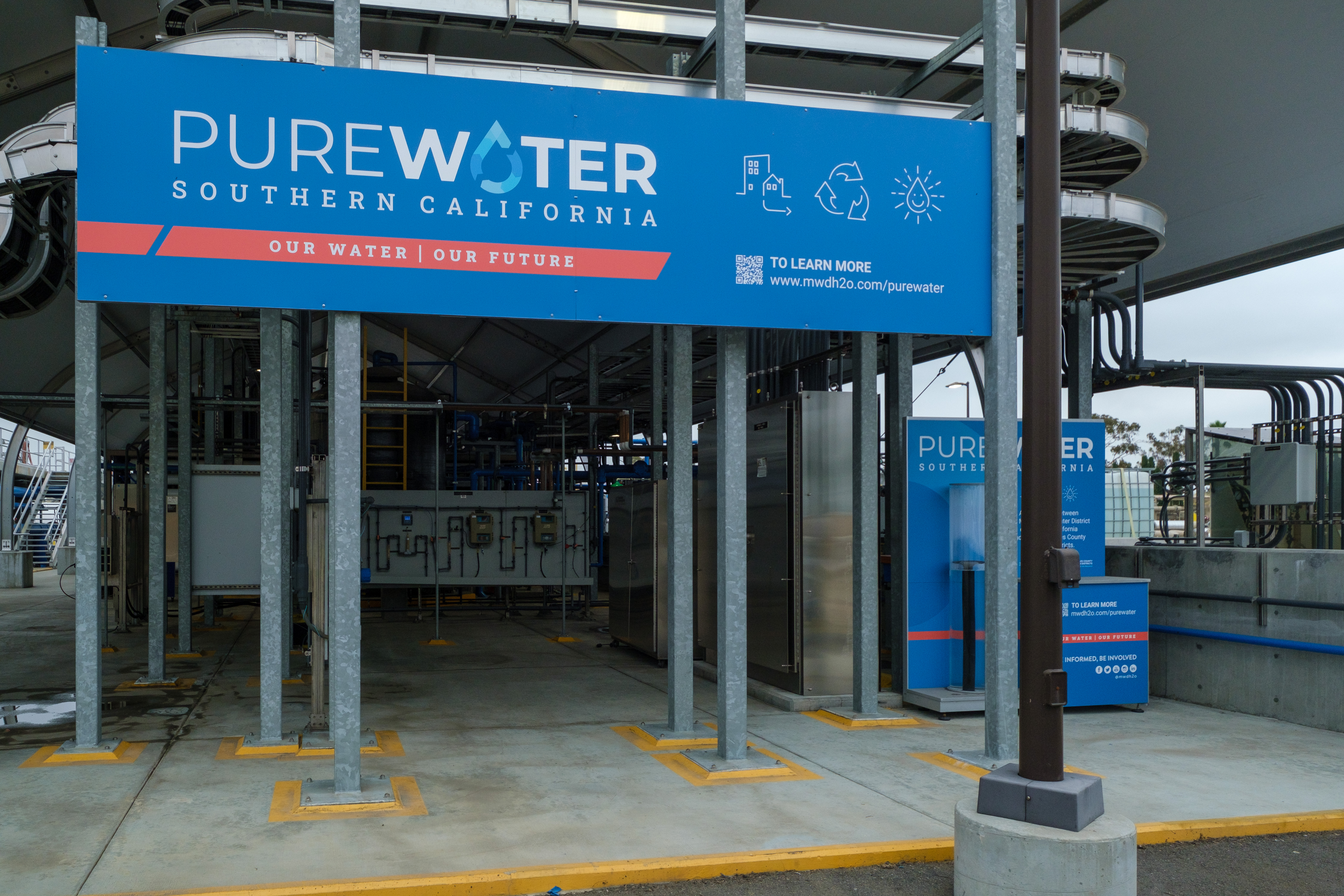
We’ve invested more than $500 million in recycled water projects, as a drought-resilient water source. Our Pure Water Southern California program could become one of the largest advanced water purification facilities in the world.
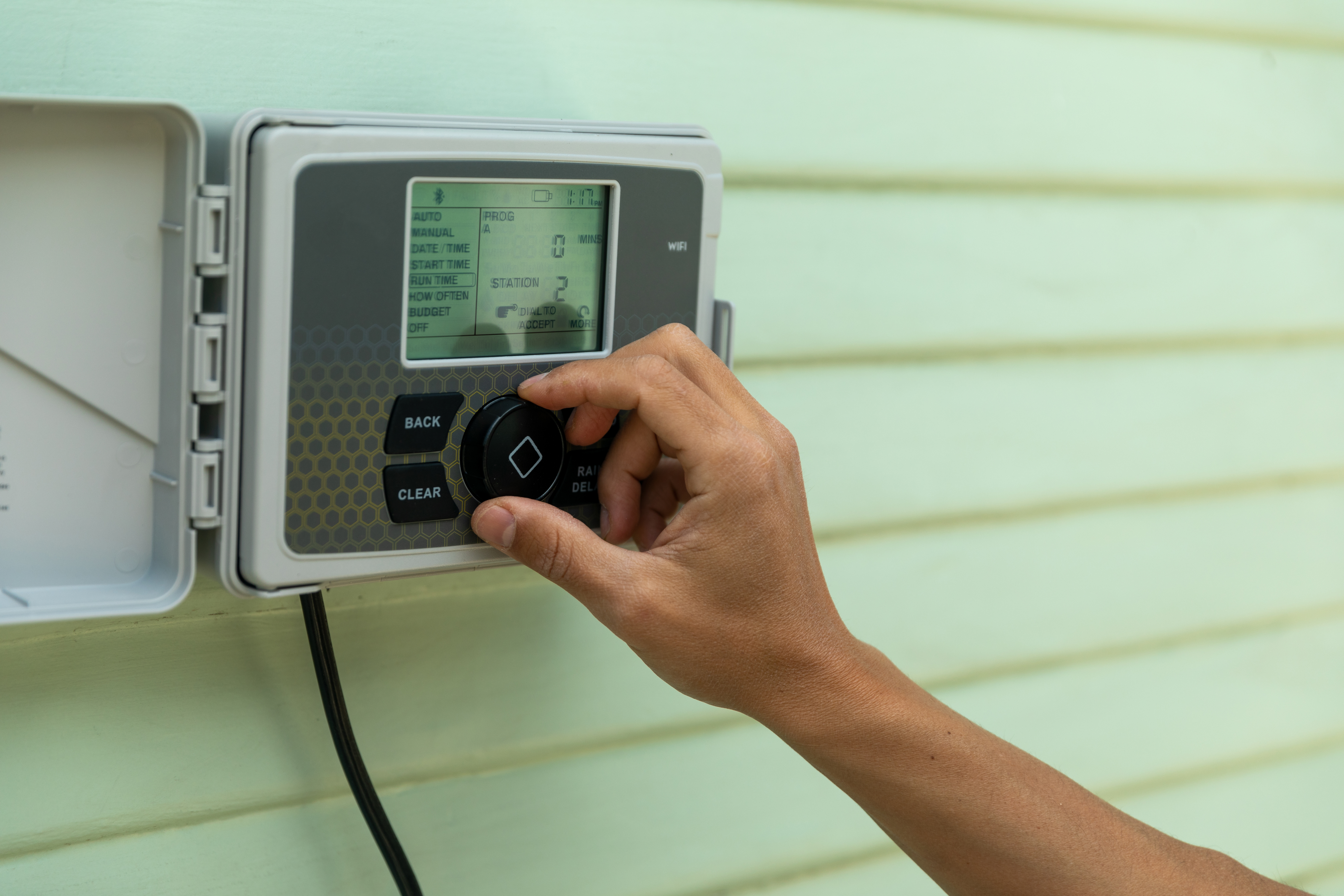
We’ve invested more than $900 million in conservation programs, helping reduce per capita potable water consumption in Southern California by about 40 percent since 1990.
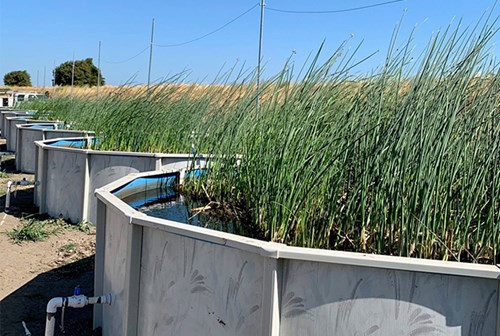
We recognize the need to preserve and protect our imported water supplies through coordinated ecosystem restoration efforts and infrastructure upgrades. Our recent initiatives in the Sacramento-San Joaquin Delta include collaborative ecosystem restoration projects and maintaining water quality by improving levees and reversing land subsidence. Proposals for the Delta Conveyance Project and Sites Reservoir will be evaluated through the CAMP4W process.
CAMP4W Resources
Invitation to Public Forum on Sept. 12: Climate Adaptation for Water (August 2024)
Community Postcard: What are the top water concerns facing your community today? (June 2024)
Factsheet: Investing in Our Water Future: Regional Planning for a Changing Climate (January 2024)
Video: Introducing the Climate Adaptation Master Plan for Water (November 2023)
Video: Grand Opening of High Desert Water Bank (November 2023)
Approve Climate Adaptation Master Plan for Water Five-Year Implementation Strategy (April 8, 2025)
Concurrence with the Long-Range Finance Plan for CAMP4W Planning Purposes (November 14, 2023)
Approval of use of Representative Concentration Pathway 8.5 for planning purposes in the Climate Adaptation Master Plan for Water - Board Letter (September 12, 2023)
Adoption of the 2020 Integrated Water Resources Plan Needs Assessment (April 12, 2022)
Technical Working Memo #10 - Climate Adaptation Policy Framework (Jan. 2025)
Technical Working Memo #9 - Project, Program & Portfolio Assessment (Sept. 2024)
Technical Working Memo #8 - Refining Signposts & Time-Bound Targets (Jan. 2025)
Technical Working Memo #6 - Time-bound Targets (Feb. 2024)
Technical Working Memo #5 - Draft Evaluative Criteria (Jan. 2024)
Technical Working Memo #3 – IRP Needs Assessment Summary (Aug. 2023)
2025
Approve Climate Adaptation Master Plan Implementation Strategy – Presentation (April 8, 2025)
Review Draft Climate Adaptation Master Plan for Water Implementation Strategy – Committee Letter (March 26, 2025)
Review Draft Climate Adaptation Master Plan Implementation Strategy - Presentation (March 26, 2025)
Review Draft CAMP4W Implementation Strategy - Committee Letter (March 11, 2025)
Review Draft CAMP4W Implementation Strategy - Presentation (March 11, 2025)
Member Agency Update on Business Model Refinement - Presentation (February 26, 2025)
Review Draft CAMP4W Implementation Strategy - Committee Letter, Attachment 1, Attachment 2 (February 26, 2025)
Review Draft CAMP4W Implementation Strategy - Presentation (February 26, 2025)
Draft Climate Adaptation Master Plan for Water Policy Framework - Presentation (February 26, 2025)
2024
Climate Decision-Making Framework Project Assessments - Committee Letter (November 20, 2024)
Climate Decision-Making Framework Project Assessments - Presentation (November 20, 2024)
Draft Climate Adaptation Master Plan for Water Policy Framework - Presentation (November 18, 2024)
Evaluative Criteria and Climate Decision-Making Framework - Committee Letter (September 25, 2024)
Evaluative Criteria and Climate Decision-Making Framework - Presentation (September 25, 2024)
Member Agency Ad Hoc Working Group Update on Business Model - Board Report (August 28, 2024)
Service Area Population Data - Board Report (August 28, 2024)
Service Area Population Data - Presentation (August 28, 2024)
Refined Evaluative Criteria Approach and Member Agency Feedback - Presentation (August 28, 2024)
Signposts, Model Inputs, and Annual Reports - Presentation (July 24, 2024)
Time-bound Targets Refinement - Presentation (July 24, 2024)
Integrating a Changing Climate into Metropolitan's Planning Processes - Presentation (June 26, 2024)
Climate Vulnerability Assessment - Committee Letter (June 26, 2024)
Climate Vulnerability Assessment - Presentation (June 26, 2024)
Business Model Refinement Discussion - Presentation (June 26, 2024)
CAMP4W Next Steps (May 30, 2024)
Business Model Refinement - Presentation (May 30, 2024)
Business Model Discussions- Presentation (May 30, 2024)
Business Model: Local Resources & Conservation - Presentation (May 30, 2024)
CAMP4W Draft Year One Progress Report and Next Steps - Presentation (May 14, 2024)
Business Model Refinement Presentation (April 24, 2024)
CAMP4W Draft Year One Progress Report - Committee Letter (April 24, 2024)
CAMP4W Draft Year One Progress Report - Presentation (April 24, 2024)
CAMP4W Draft Year One Report - Committee Letter (March 27, 2024)
CAMP4W Draft Year One Report - Presentation (March 27, 2024)
Climate Adaptation Master Plan for Water Training Workshop - Presentation (March 18, 2024)
Update on Member Agency Dashboard with Climate Projections - Presentation (February 29, 2024)
CAMP4W Panel on Cost Containment and Offsets (January 8, 2024)
2023
Review Proposed Evaluative Criteria and Decision-Making Framework – Committee Letter (December 19, 2023)
Review Proposed Evaluative Criteria and Decision-Making Framework – Presentation (December 19, 2023)
Development of a Decision-Making Framework and Draft Evaluative Criteria - Board Letter (November 21, 2023)
Summary of Climate Adaptation Master Plan for Water Efforts to Date (November 21, 2023)
CAMP4W Joint Task Force Membership, Objectives and Charter (November 21, 2023)
Final Draft of the 2023 Long-Range Finance Plan Needs Assessment (November 14, 2023)
CAMP4W Panel on Regulatory Requirements Impacting Affordability (November 13, 2023)
CAMP4W Panel on Household Affordability (October 24, 2023)
Review Draft 2023 Long-Range Finance Plan Needs Assessment (October 10, 2023)
Climate Adaptation Master Plan for Water – Presentation (August 22, 2023)
Update on Outreach for Climate Adaptation Master Plan (July 25, 2023)
Member Agency Alignment and Gap Analysis (June 27, 2023)
Terminology and Interests (May 23, 2023)
Facilitated Discussion on Terminology and Interests (May 23, 2023)
Climate Adaptation Master Plan for Water (May 23, 2023)
Annual Climate Action Plan and Update on Climate Vulnerability and Risk Assessment (May 8, 2023)
Discussion on Climate Adaptation Master Plan for Water Workshops (April 25, 2023)
Next Steps on the Climate Adaptation Master Plan for Water (April 11, 2023)
Potential Framework for Climate Adaptation Master Plan for Water Process (February 28, 2023)
Summary Notes from Public Forum on Climate Adaptation for Water (September 2024)
Example Project Scoring Using CAMP4W Assessment Form (September 2024)
Climate Vulnerability & Risk Assessment (July 2024)
CAMP4W Year One Progress Report (May 2024)
Summary Notes from CAMP4W Listening Session on Draft Time-bound Targets (March 2024)
Overview and Summaries of Recent Panel Discussions on Affordability (March 2024)
Summary Notes from CAMP4W Listening Session on Draft Evaluative Criteria (December 2023)
Charter for CAMP4W Joint Task Force (November 2023)
Metropolitan Water District of Southern California Climate Action Plan (May 2022)